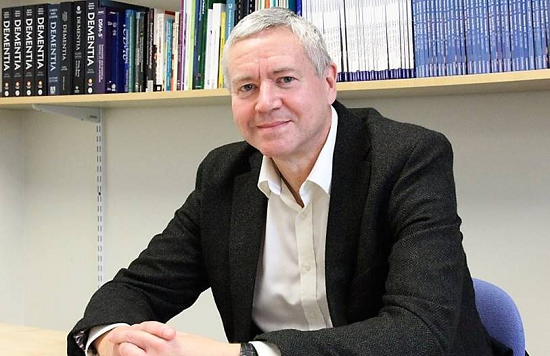Over the last few years we have heard of lots of people living with dementia, having their diagnosis of dementia being changed.
This is sometimes from one type of dementia, to another, or simply being told that you have not deteriorated fast enough, so the diagnosis is changed to mild cognitive impairment or something else.
Being diagnosed with this illness is bad enough, but then for someone else to come along and change it again leaves a lot to be desired, especially when they think its funny
The only change may be the term used, because more often than enough your symptoms are exactly the same, and no matter which way we look at it, there is nothing at all mild about, Mild Cognitive Impairment, if your diagnosis is changed to that.
As one family doctor told us, these terms are changed by various hospitals and doctors etc, because they themselves don’t understand what is going on in your brain.
Another consultant told us, the only answer will come when we die and our brain can be looked at properly.
Its one thing to change a diagnosis, but the damage done by this can cause a lot of problems, to those concerned
So many brain diseases appear to have very similar symptoms, that I guess it’s how the diagnosis is sorted out using your symptoms at the time.
In my own case, I was originally diagnosed as having Alzheimer’s, then a consultant told me the I had early onset Lewy Body Dementia, which was confusing.
Later on I was told by a young doctor that because I had not deteriorated fast enough she was changing my diagnosis to Mild Cognitive Impairment, at which stage, I was so upset and unsure of what was happening that I walked out of the hospital in tears.
My wife then demanded a second opinion from a consultant before she followed me outside
This was handled so badly that I felt as if I had being living a lie, something I knew was wrong, but it left me in a mess for some time.
Eventually I saw a Dementia consultant, who said that he was convinced I had a slower burning type of Lewy Body Dementia, as many people don’t always follow the same pathway, and it could take longer to get to the later stages.
Here again he said that we would never know the answer until I died.
A lot of people have said that when this happens, they feel upset and humiliated because of the way they were being dealt with at the time.
I guess it’s enough to push people over the top, but I was lucky that I had a supportive wife, family and family doctor who got me back on track, and never got to the wrong end of this.
One dear friend has recently been told that a head injury earlier in life, could have caused problems later on which were then diagnosed as Alzheimer’s. So it proves that even experts can get things wrong.
I had a bad head injury years ago and woke up on the floor after falling around 15ft or so. At that point I felt as if my head had exploded, and suffered from horrific headaches for some time afterwards, but I gathered that this could not have had any bearing on my diagnosis.
I then went to have episodes of epilepsy, or so we were told, then we were later told that this could have been the start of my dementia, although I was left thinking that someone had got it wrong again
I guess one day we will be able to get better diagnosis procedures, which will be a great help to both consultants and patients, but we may have a long wait.
I the mean time it’s a case of keeping as active and busy as possible, so that our brains can remain active.
Use it or Lose it
